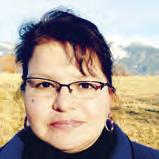

PROMOTING & PROTECTING INDIGENOUS RIGHTS
BUILDING NATIVE
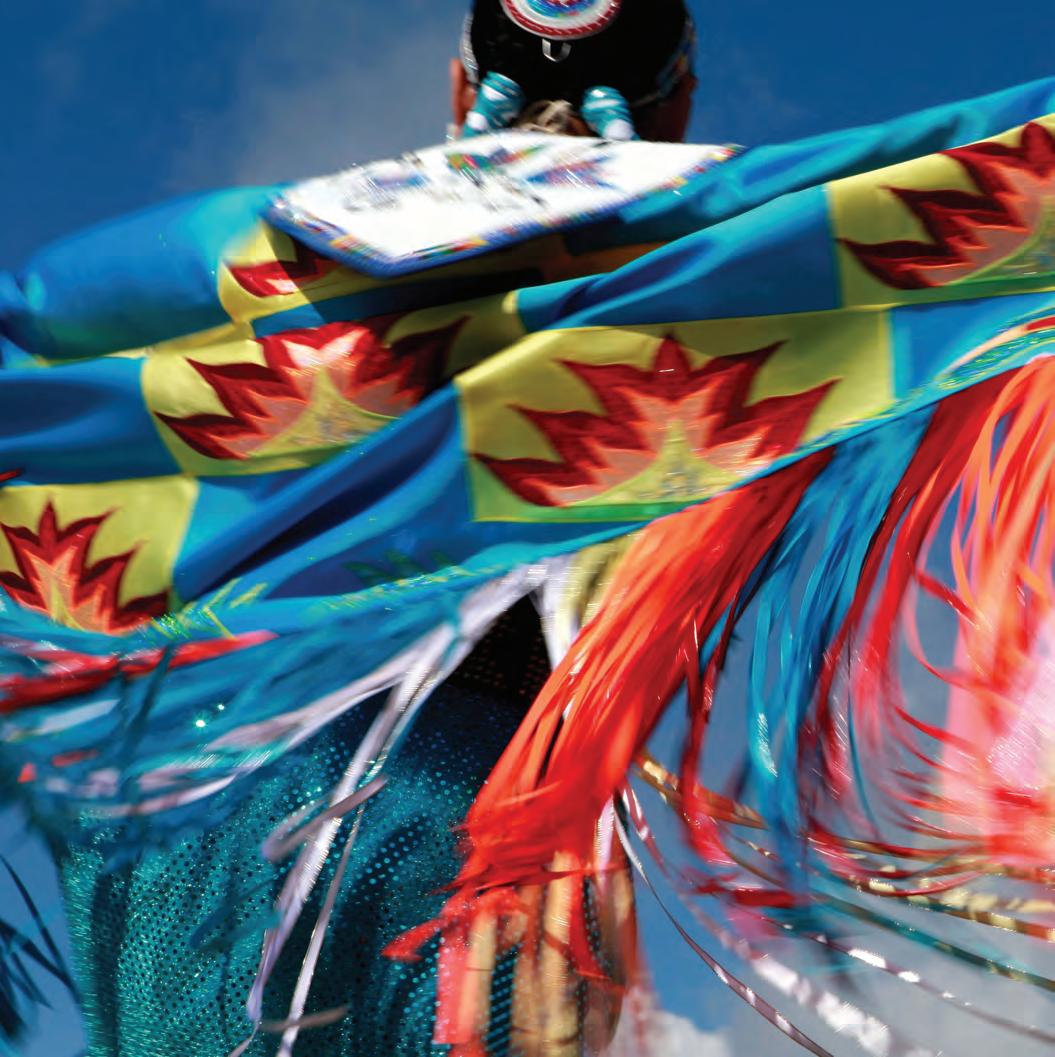
The Indigenous Peoples Law and Policy (IPLP)
Program at University of Arizona Law promotes and protects Indigenous peoples’ human rights and increases the representation of Indigenous lawyers and academics.
STRONGER NATIONS

The IPLP Program is an undisputed leader in the fields of federal Indian law, tribal law and policy, and Indigenous human rights advocacy, thanks to:
` eminent educators, scholars and legal advocates
` precedent-setting clinical work on cases around the world
` a thriving student community that has produced nearly 250 Indigenous law graduates
DEGREE PROGRAMS
A University of Arizona Law degree with a focus in Indigenous peoples law and policy equips you to advance the rights of Indigenous peoples across Indian country and throughout the world. You will gain the critical thinking skills and lawyering tools you need to develop innovative and effective legal strategies and policy initiatives.
IPLP faculty instill a strong understanding of the legal foundations of federal Indian law, tribal self-determination, and the trust responsibility, informed by developing norms of contemporary international law respecting Indigenous peoples’ human rights.
JURIS DOCTORATE (JD)
JD students can earn a JD certificate in Indigenous peoples law and policy, giving you the legal foundation necessary to effectively advocate on behalf of Indigenous peoples, improve the administration of justice within Indigenous communities, and engage in Native nation building efforts.
MASTER OF LAWS (LLM)
If you have earned a JD or LLB, the Indigenous peoples law and policy LLM provides you with the opportunity to specialize in federal Indian law, tribal law and policy, and Indigenous peoples’ rights through rigorous research and advocacy work. The LLM is available in person and online and requires 24 credits of coursework.
DOCTOR OF JURIDICAL SCIENCE (SJD)
The highest degree offered in the field of law, the SJD degree offers you an intellectually challenging opportunity for academic specialization. You will conduct research and produce original scholarship under the guidance of IPLP’s internationally renowned faculty. SJD students must complete a fulltime, two-semester year in residency to complete 24 credits.
MASTER OF LEGAL STUDIES (MLS)
The MLS for non-lawyers is a one-year degree program you can complete on a full-time or part-time basis, in person or online. The MLS will enhance your professional effectiveness and give you a strong foundation for working with and understanding laws, legal issues, and regulations. As part of the MLS degree, you can pursue a concentration in Indigenous peoples law and policy.
UNDERGRADUATE CERTIFICATE IN TRIBAL COURTS AND JUSTICE ADMINISTRATION
The Tribal Courts and Justice Administration Undergraduate Certificate provides a strong foundation in the workings of tribal courts and justice systems for undergraduate students wishing to pursue careers as tribal court advocates, court clerks, and many other professions connected to the administration of justice in Indian country. The certificate program helps prepare students who desire to go on to law school and specialize in federal Indian law, tribal justice systems, and Indian country self-governance institutions.
INDIGENOUS GOVERNANCE PROGRAM
Established in 2012, the Indigenous Governance Program (IGP) is an educational partnership between the University of Arizona’s Native Nations Institute and the IPLP Program. The IGP offers on-campus and online courses to law and graduate students, tribal leaders, and other professionals interested in developing a deep, practical understanding of Indigenous governance and rights. IGP offers professional development certificates and graduate degrees and certificates in Indigenous governance.
MASTER OF PROFESSIONAL STUDIES (MPS) AND GRADUATE CERTIFICATE (GC) IN INDIGENOUS GOVERNANCE
The MPS and GC are designed with working professionals in mind, combining brief but intensive on-campus classes with a diverse menu of online courses and externship credits. The 30-credit MPS degree and 12-credit GC can be completed within one year. By combining the immersive in-person January in Tucson experience with a robust online curriculum, the MPS and GC gives students flexibility to create their own specialized courses of study. The core curriculum consists of a series of 1-credit January in Tucson courses, covering topics from Native nation building, Indigenous governance, intergovernmental relations, Indigenous peoples’ human rights, and community development.
CONTINUING EDUCATION CERTIFICATE
The Continuing Education Certificate is a professional development certificate that requires participants to take six January in Tucson courses. Take part in courses taught by renowned faculty, covering a wide variety of topics related to Indigenous governance, Indigenous rights, and economic, community, and leadership development.
DUAL JD/MPS
Arizona Law students pursuing the JD can pursue a dual JD/MPS, that can be completed in 4 years.
JANUARY IN TUCSON
Through a partnership with the University of Arizona’s Native Nations Institute, IPLP convenes January in Tucson, an accelerated executive education program that draws an international group of tribal leaders and other professionals who learn together and share ideas about how to strengthen Indigenous governance. Curriculum covers topics such as Native economic development, Native nation building, and Indigenous governance.
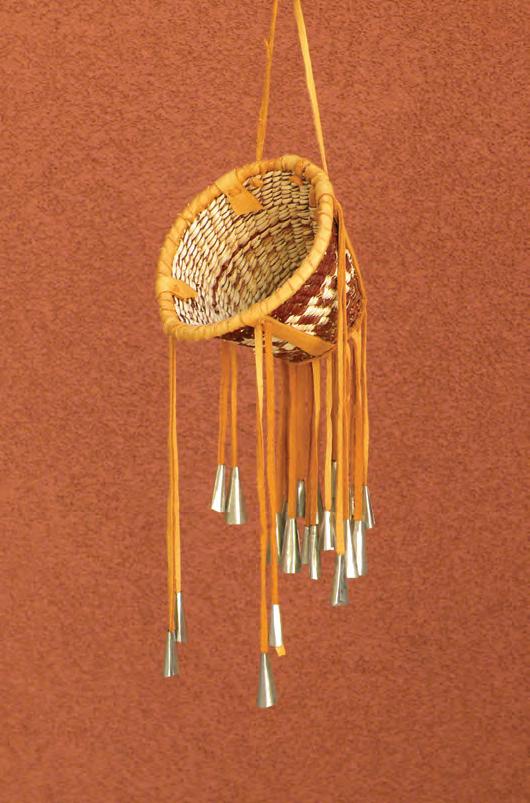
IPLP COURSES
The IPLP curriculum consists of more than 30 regularly offered courses and three legal clinics, including:
` Federal Indian Law
` Tribal Courts & Tribal Law
` Tribal Water Rights
` Indian Energy Law
` Child Tribe & State
` Law of Gaming & Gambling
` Native American Natural Resources
` Critical Race Practice
` International Human Rights and Indigenous Peoples
` International Environmental Law
` Law and Culture
CLINICS AND


“The IPLP Program provided me with a first-class education in federal Indian law and tribal law, helped me obtain an internship working for tribes in northern Nevada, and supported me to compete in the National Native American Law Students Association Moot Court Competition. Most importantly, IPLP sparked a passion within me to advocate for tribal sovereignty and the self-determination of tribes, no matter where life takes me. If you want to learn from the most experienced practitioners and professors, I highly recommend IPLP.”
KATYA M. LANCERO (JD ’14) Attorney, Sacks Tierney
ADVOCACY

The IPLP Program connects students with Indigenous communities across Arizona, North America and the world to advocate for Indigenous peoples’ rights before United States and other domestic courts, tribal courts, the InterAmerican Commission on Human Rights, the United Nations system, and other regional and international human rights bodies.
INDIGENOUS HUMAN RIGHTS ADVOCACY
Students at University of Arizona Law have the unparalleled opportunity to work on Indigenous human rights issues under the supervision of UN Special Rapporteur on the Rights of Indigenous Peoples Francisco Calí Tzay. Seanna Howard, director of the International Human Rights Advocacy Workshop, and her clinic students, assist Calí Tzay, working on a wide range of research and advocacy projects at the highest levels of the UN human rights system and Inter-American Commission on Human Rights to support his UN mandate.
INTERNATIONAL HUMAN RIGHTS ADVOCACY WORKSHOP
Participate in cases and advocacy projects focusing on petitions and initiatives with substantial international human rights dimensions involving Indigenous peoples. IPLP faculty, staff and students are working closely with UNSR Calí Tzay at the highest levels of the UN human rights system on advocacy and research projects to protect and promote Indigenous human rights. IPLP faculty and students are also working with the Water Protectors Legal Collective to develop an international human rights response to the legal and human rights concerns facing “water protectors” demonstrating against the Dakota Access Pipeline (DAPL) in Standing Rock, North Dakota.
YAQUI HUMAN RIGHTS PROJECT
Gain practice experience in international environmental law and innovative approaches to important environmental, public health, and community development problems. Under the guidance of Professor James Hopkins, work on interdisciplinary advocacy projects, such as representing the Traditional Authorities of the Rio Yaqui Pueblos on a petition before the Inter-American Commission on Human Rights to protect Yaqui traditional lands, water rights, community public health, and economic development.
TRIBAL JUSTICE CLINIC
Students enrolled in the Tribal Justice Clinic provide legal assistance to tribes throughout the Southwest, North America, and the world. Students serve as tribal judicial clerks, write amicus briefs, develop legal strategies, and work beside criminal defenders and tribal prosecutors in courtroom settings. They contribute to important tribal justice projects, researching best practices, drafting legislation, and developing tribal codes.
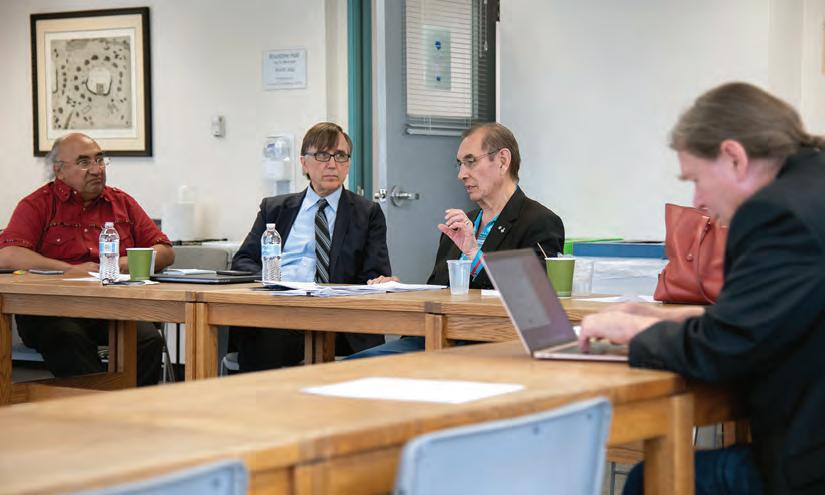
UN Water Consultation (2021)
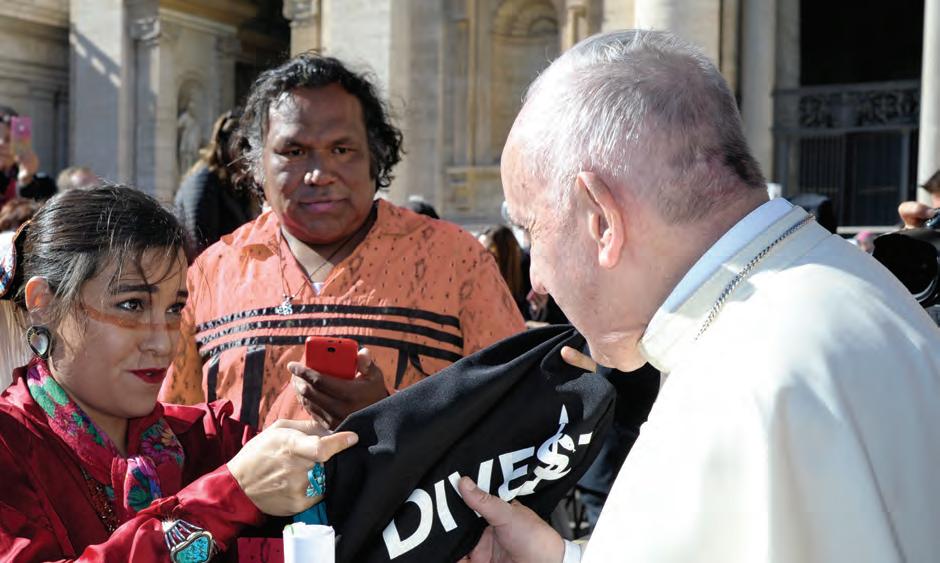
INTERDISCIPLINARY RELATIONSHIPS
IPLP offers you an academic and professional network through partnerships with tribes, organizations and University of Arizona programs focused on research and advocacy with Indigenous peoples. We collaborate with:
` Pascua Yaqui Tribe
` Tohono O’odham Nation
` Water Protector Legal Collective
` Native Nations Institute*
` Udall Center for Studies in Public Policy*
` Department of American Indian Studies*
` American Indian Language Development Institute*
` Native American Research and Training Center*
` Mel and Enid Zuckerman College of Public Health*
` Native Peoples Technical Assistance Office*
` Indigenous Resilience Center*
*University of Arizona

“The IPLP Program is the reason I came to University of Arizona Law after completing my undergraduate degree at Harvard University, and it is the reason I got the best possible job as an Indian Country business attorney at a large law firm in Minneapolis. IPLP is the crown jewel at Arizona Law.”
LEAH LUSSIER SIXKILLER (JD ’10) Of Counsel, Hogen Adams PLLC and Judge, Shakopee Mdewakanton Sioux Community
SJD candidate Michelle Cook urging Pope Francis to divest from fossil fuels
PROFOUNDLY INFLUENTIAL
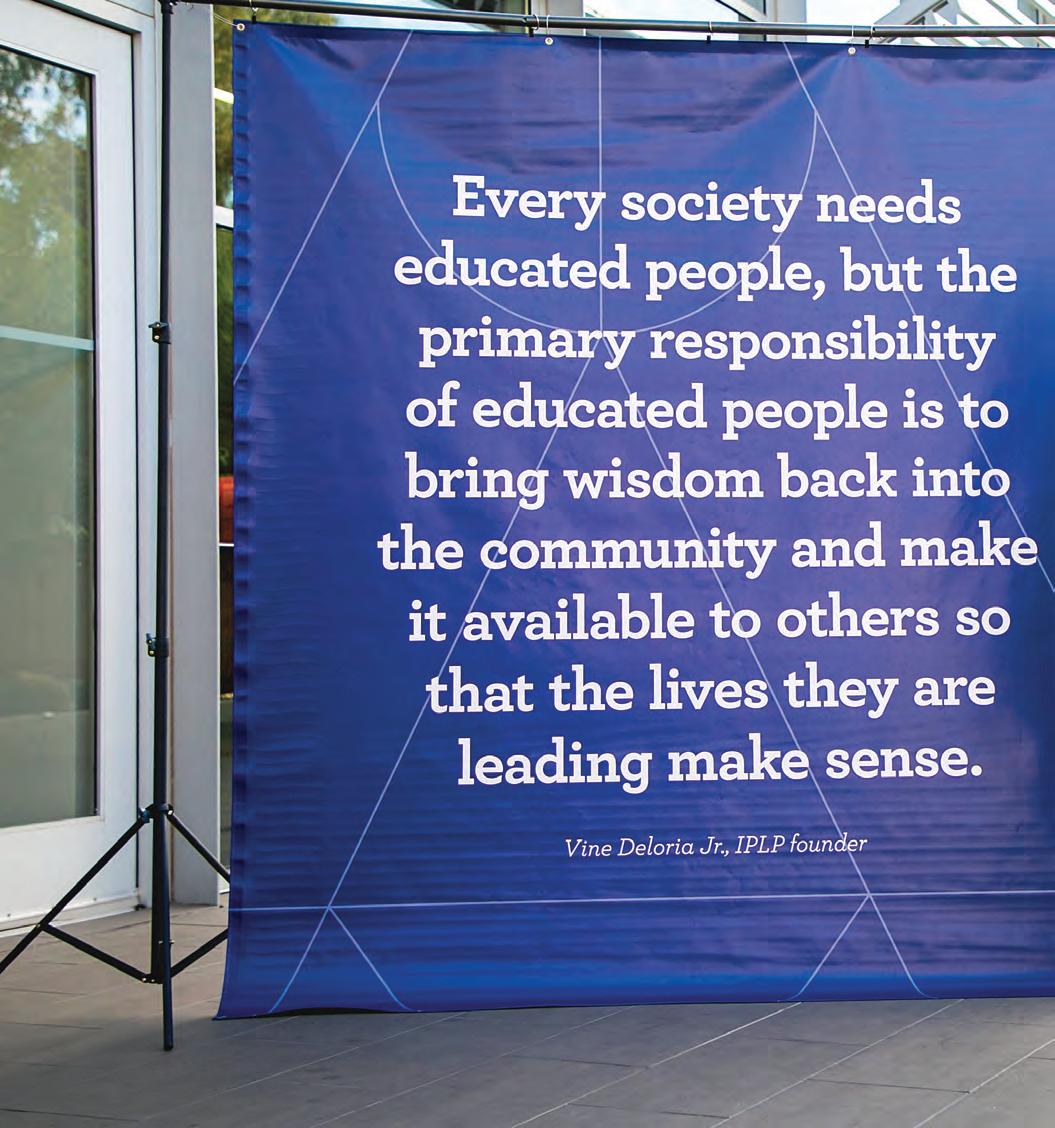
INFLUENTIAL FACULTY
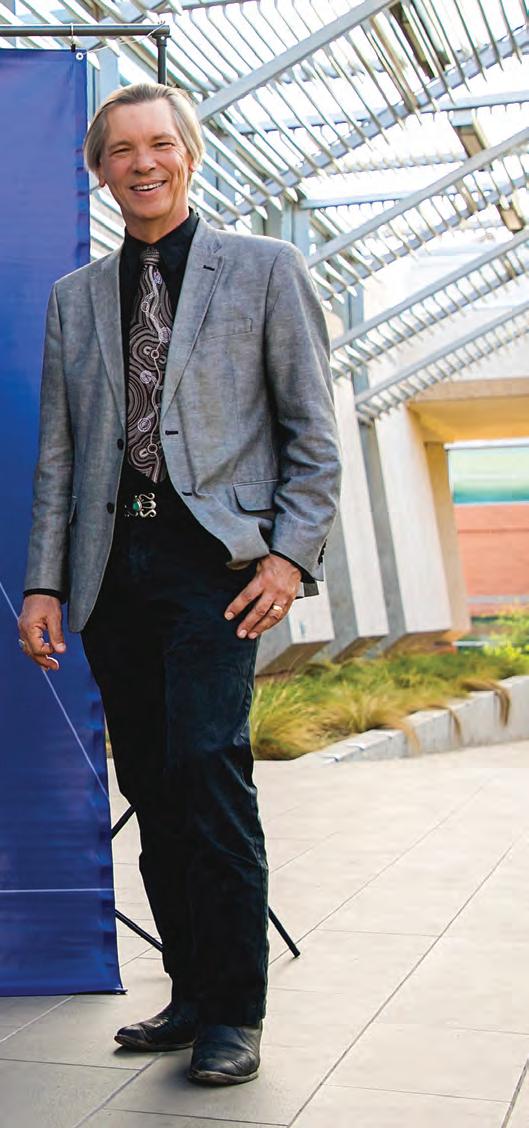
The IPLP Program is led by scholars and legal advocates who are known around the world for advancing Indigenous peoples’ rights and for profoundly impacting your education and career. And our low student-faculty ratio and open-door policy mean your access to faculty extends far beyond the classroom.






KEITH RICHOTTE, JR.
Director, Indigenous Peoples Law and Policy Program; Professor of Law
Keith Richotte, Jr. is the director of the Indigenous Peoples Law and Policy and Program and a professor at the James E. Rogers College of Law. Professor Richotte has served his tribal nation, the Turtle Mountain Band of Chippewa Indians, as an associate justice on the appellate court since 2009 and serves as the Chief Justice of the appellate court of the Spirit Lake Nation. He received his JD from the Minnesota Law School, his PhD from the University of Minnesota, and his LLM from the IPLP Program.
REBECCA TSOSIE
Regents Professor of Law
Rebecca Tsosie has extensive experience working with tribal communities across Indian country and currently serves as appellate judge for the Fort McDowell Yavapai Nation’s Supreme Court and San Carlos Apache Tribe’s Court of Appeals. She teaches in the areas of property, federal Indian law, and tribal law and policy. Tsosie’s research interests include tribal self-determination within the U.S. constitutional framework, environmental justice for tribal communities, and intellectual property rights to cultural resources.
ROBERT A. WILLIAMS, JR.
Regents Professor of Law, E. Thomas Sullivan Professor of Law
Robert A. Williams, Jr. is co-author of “Federal Indian Law: Cases and Materials” (7th ed., with David Getches, Charles Wilkinson, Matthew Fletcher, and Kristen Carpenter, 2016). He has represented tribal groups and members before the Inter-American Court of Human Rights, the Inter-American Commission on Human Rights, the United Nations Working Group on Indigenous Peoples, the United States Supreme Court, and the Supreme Court of Canada.
SEANNA HOWARD
Associate Clinical Professor; Director, International Human Rights Advocacy Workshop; Affiliated Faculty Human Rights Practice & Latin American Studies
Seanna Howard teaches International Human Rights and Indigenous Peoples and directs the International Human Rights Advocacy Workshop. She received her bachelor of environmental studies from the University of Waterloo, Ontario, her LLB from the University of Ottawa, Ontario, and her LLM from University of Arizona Law.
JOSÉ FRANCISCO CALÍ TZAY
Lecturer in Law and Associate Director, IPLP Human Rights Clinical Programs
José Francisco Calí Tzay is Lecturer in Law and Associate Director of IPLP Human Rights Clinical Programs at the College of Law. Professor Calí Tzay serves as the United Nations Special Rapporteur on the Rights of Indigenous Peoples and helps direct IPLP’s human rights clinical programs.
JAMES C. HOPKINS
Associate Clinical Professor
James Hopkins teaches international environmental law and is clinical director of the Yaqui Human Rights Project. He received his BA and LLB from the University of Toronto and his LLM from Harvard Law School.
MELISSA L. TATUM
Research Professor of Law
Melissa Tatum teaches in the areas of tribal jurisdiction, tribal courts, and cultural property and sacred places. She received her BA from Trinity University and her JD from the University of Michigan Law School.
HEATHER WHITEMAN RUNS HIM
Associate Clinical Professor; Director, Tribal Justice Clinic
Heather Whiteman Runs Him joined Arizona Law from the Native American Rights Fund in Boulder, Colorado, where she represented tribal clients on water rights and advised clients on claims relating to water, land, and other natural resource issues. Prior to that she was joint lead counsel at the Crow Tribe Office of Executive Counsel and an assistant public defender for New Mexico Public Defenders–Metro Division. She received her JD from Harvard Law School.
TORY FODDER
Indigenous Governance Program Manager; Professor of Practice
Tory Fodder is an emerging scholar in the field of Indigenous law and has research interests in international Indigenous human rights and policy, critical race theory, Indigenous libertarianism, and Indigenous governance best practices.



NATIVE NATIONS INSTITUTE AFFILIATED FACULTY
The IPLP Program collaborates closely with University of Arizona’s Native Nations Institute on community outreach, research and policy analysis, and professional training and development programs to meet the Native nation-building needs of Indigenous communities.
MIRIAM JORGENSEN
Research Director, Native Nations Institute
In addition to her work with the university’s Native Nations Institute, Miriam Jorgensen is research director for its sister program, the Harvard Project on American Indian Economic Development. Her areas of specialty are Indigenous governance and economic development, with a particular focus on the ways communities’ governance arrangements and socio-cultural characteristics affect development.
STEPHEN CORNELL
Professor of Sociology, Faculty Chair of the Native Nations Institute and former director of the Udall Center for Studies in Public Policy, University of Arizona
A political and cultural sociologist, Stephen Cornell did his PhD at the University of Chicago. He taught at Harvard University for nine years before moving to the University of California, San Diego, in 1989 and then to the University of Arizona in 1998. In the late 1980s, at Harvard, Cornell and economist Joseph P. Kalt founded the Harvard Project on American Indian Economic Development; they continue to direct that project today.
JOSEPH KALT
Ford Foundation Professor (Emeritus) of International Political Economy, John F. Kennedy School of Government, Harvard University; Faculty Associate, Native Nations Institute
Joseph Kalt has represented various tribes in the negotiation of contracts, the rewriting of tribal constitutions, the reform of tribal governments, the mediation of disputes, the design of tribal enterprises, and the securing of compensation for treaty violations and land confiscation.

A STUDENT COMMUNITY THAT UNDERSTANDS YOUR PERSPECTIVE
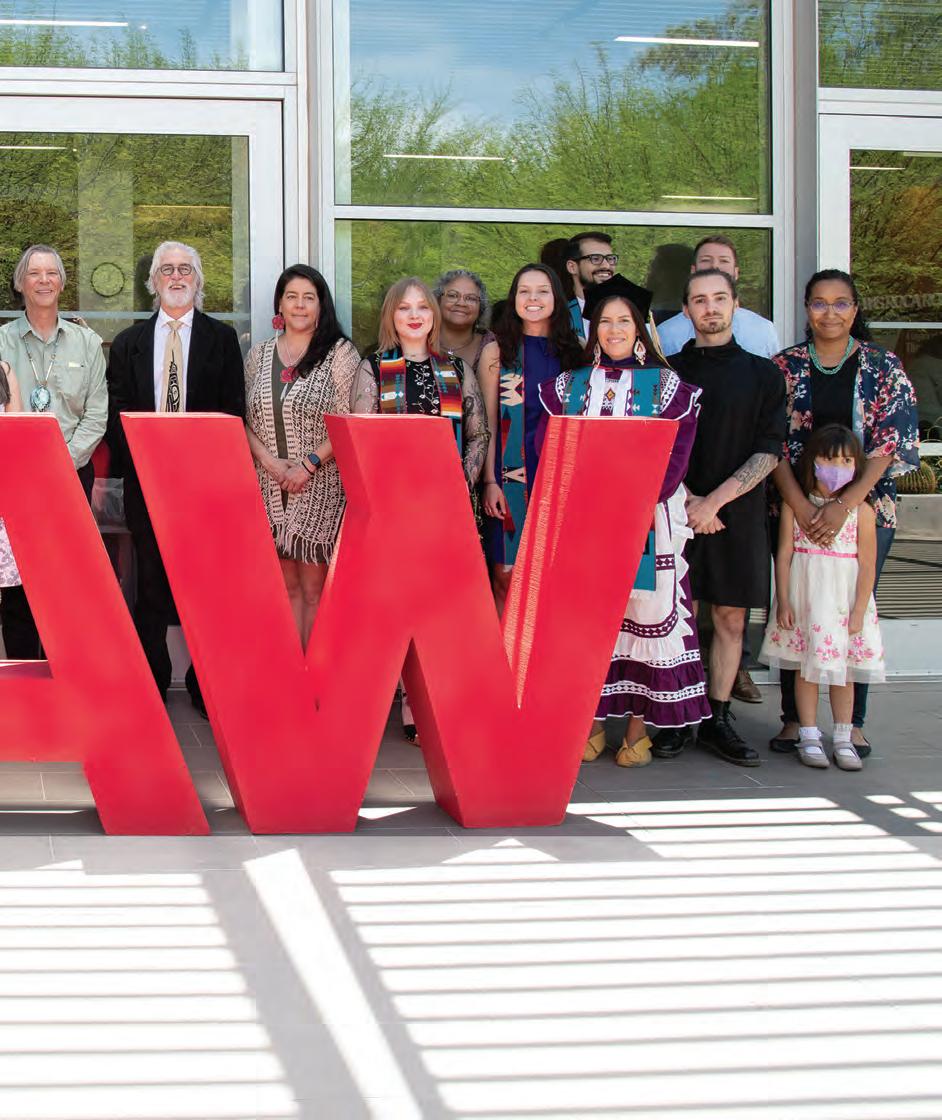
As a University of Arizona Law student, you will join a close-knit community that is home to one of the largest Native American student populations in any of the country’s top-ranked law schools. University of Arizona Law is ranked the number two law school in the nation for Native American students by PreLaw Magazine (Winter 2022).

YOUR HOME AWAY FROM HOME
Here you will find students and legal advocates joining together to protect and advance Indigenous peoples’ rights. The home-away-from-home environment we have cultivated means you have a built-in support system and everything you need to succeed in your education. In addition to the benefits of joining a deliberately small, selective law school, you can take full advantage of being integrated with a large, top-tier research university and its rich resources, academic prowess and campus culture.
NATIVE AND INDIGENOUS LAW STUDENTS ASSOCIATION
At the heart of the IPLP student community is the University of Arizona Native and Indigenous Law Students Association (NILSA), one of the largest chapters in the country. Throughout the school year, NILSA organizes events, provides mentorship, conducts fundraisers, brings awareness to Indigenous Peoples’ Day, and provides volunteer opportunities with local Native employers and communities.

“My experience earning my SJD at IPLP was fundamental to my professional career. The program combines academic, practical and social engagement at the highest level, allowing me to contribute to the promotion of Indigenous peoples’ rights in Brazil and internationally.”
ERIKA YAMADA (SJD ’08) Program Officer, Brazil, Ford Foundation; Former Member, UN Expert Mechanism on Rights of Indigenous Peoples
LIFE IN TUCSON
Tucson, Arizona, offers you a diverse and welcoming setting in which to study law. The unique beauty of Tucson, along with its rich history and cultural diversity through its Native, Mexican and Spanish forebears, makes an ideal setting for research and graduate-level studies.
We respectfully acknowledge the University of Arizona is on the land and territories of Indigenous peoples. Today, Arizona is home to 22 federally recognized tribes, with Tucson being home to the O’odham and the Yaqui. Committed to diversity and inclusion, the University strives to build sustainable relationships with sovereign Native Nations and Indigenous communities through education offerings, partnerships, and community service.
Best U.S. City (Resonance Consulting, 2021)
350 days of sunshine annually (it’s a dry heat)
800 miles of bike paths
Nearly 1 million residents
Tucson ranks one of the “25 Most Fun Cities in America” (USA Today)
explore Sabino Canyon

#2 Best Places/Towns to Live (Outside magazine)

vibrant downtown and nightlife
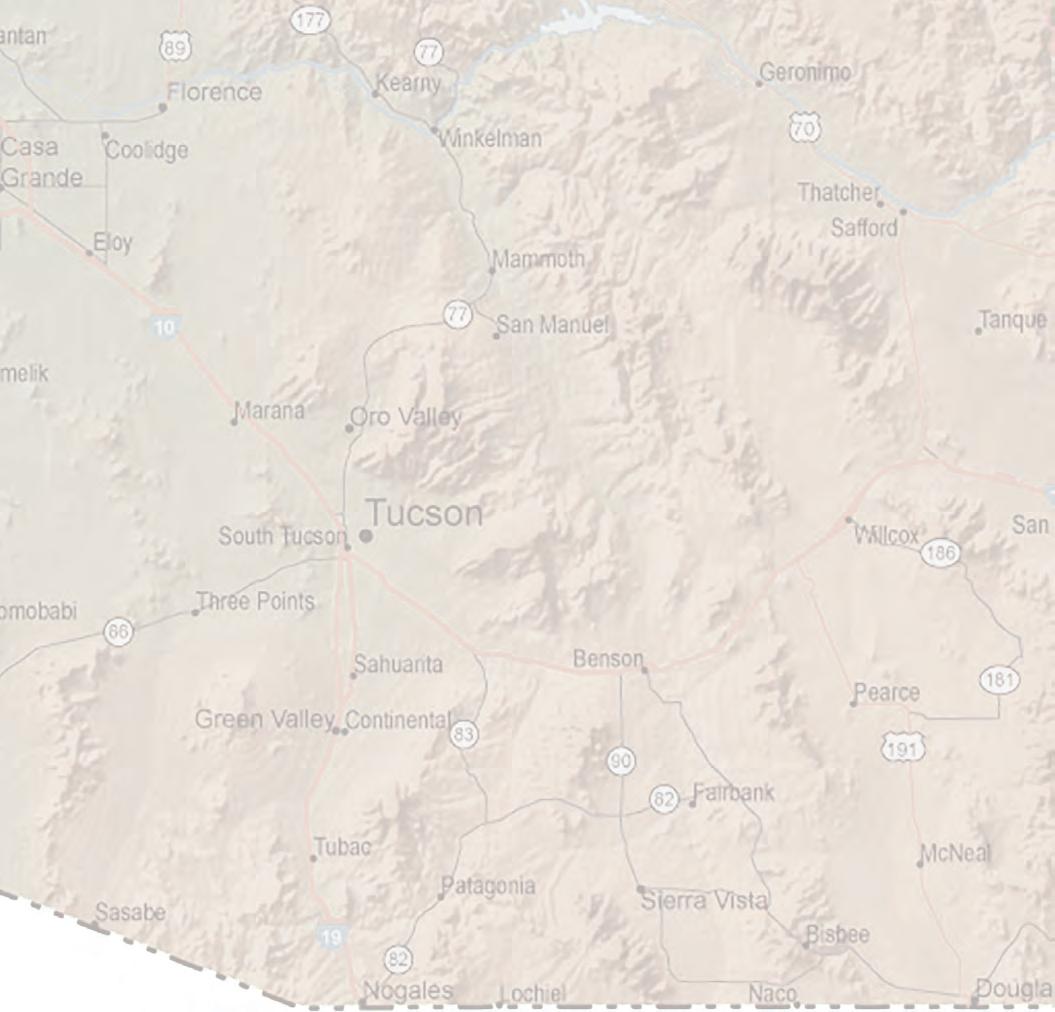
1 National Park, 1 State Park, 1 National Forest
Best Cities for Bikes (People for Bikes 2018)
First U.S. locale named a UNESCO World City of Gastronomy
Surrounded by five mountain ranges with hundreds of miles of hiking trails, plus snow skiing
LEGACY-BUILDING
University of Arizona Law provides you with every possible resource to transform your passions and skills into a fulfilling career. IPLP alumni are advancing the rights of Indigenous people in the U.S. and around the world on six continents. See how these IPLP graduates are putting their education to work in their communities.
“The IPLP Program gave me a new and unique perspective of Indigenous law and policy throughout the world. Whether you are in Montana or Brazil, Indigenous peoples throughout the world suffer different forms of injustice every single day. Through the IPLP Program I was able to look at Indigenous law and policy from a different angle. This ultimately gave me a greater understanding of the laws and policies that impact my tribe and other tribes located here in Montana. I appreciated the opportunity to work with the great legal minds of IPLP. Because of my time with IPLP, I am now a better person and advocate.”


“SHANE MORIGEAU (LLM ’11) Attorney,
Confederated Salish and Kootenai Tribes
The IPLP Program gave me the practical tools to push the four corners of current law and policy and advocate for change in Indian Country. The program achieves academic excellence with Indigenous peoples’ human rights law not through books alone, but through hands-on, practical experience. The IPLP Program aided my career goals to work in Indian Country by building my expertise in federal Indian law and policy, coupled with the growing field of Indigenous peoples law and policy.”
SHANNON KELLER O’LOUGHLIN (JD ’01) CEO, Association on American Indian Affairs
“
I am profoundly thankful to everyone at IPLP. The program has been both a training ground and source of inspiration; its experiential learning environment allowed me to interact with renowned professors, friendly staff, local Indigenous communities, international practitioners and brilliant students from diverse backgrounds. Thanks to the skills I honed at IPLP, I will make meaningful contributions advancing Indigenous peoples’ rights.”
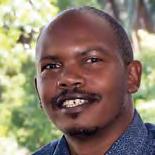
ELIFURAHA LALTAIKA (SJD ’16) Director of Research and Consultancy,
Tumaini University Makumira;
Former Member,
United Nations Permanent Forum on Indigenous Issues
IPLP ALUMNI ......

“Participating in the IPLP program as an LLM student enriched my academic and personal life immensely. My fellow students, who came from all parts of the world, helped to challenge my thinking and shape my perspective on how we go about collectively tackling the unique challenges facing our communities today. The bonds formed with my IPLP colleagues, professors and staff continue to this day. I am grateful for the support, encouragement and advice that they continue to provide to me.”
WENONA BENALLY BALDENEGRO (LLM ’11)
Assistant Attorney General, Pascua Yaqui Tribe
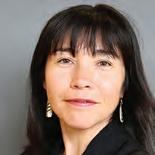
“I look back at my time at IPLP with gratitude. IPLP’s community of critically thinking advocates provided a home for me during my legal studies. I was inspired to dig deeper by IPLP professors and to work harder by my colleagues in the pursuit of justice for Indigenous peoples around the world. The quality of the professors and students was remarkable. We didn’t simply gloss over lessons, we dug in. The law is a social construction, and the humanity of it shined through brightly in the classroom. Our courses didn’t dissociate the law from humanity; it was recognized for its human origins, and we were empowered to impact and shape it as legal practitioners. The program equipped me with the necessary tools I use as a modern-day warrior, fighting for justice for Indigenous peoples every day.”
ELIZABETH HENSLEY (JD ’09) Vice President, External and Government Affairs, NANA Regional Corporation, Inc.

“I rely on the lessons I learned through the IPLP Program every day. The program, and the professors behind it, gave me a great foundation for advocating on behalf of Indian country. The bright and driven students who went through the program alongside me were an important support system during law school, and this support has continued on.”
KATIE KLASS (JD ’11) Partner, Hobbs Straus Dean & Walker
“The IPLP Program offered me the chance to study Indian Law from a fresh perspective, by and for people who have a hand in changing the face of law in Indian country and internationally.”
ELDENA BEAR DON’T WALK (LLM ’13)
Chief Justice, Confederated Salish and Kootenai Tribes
